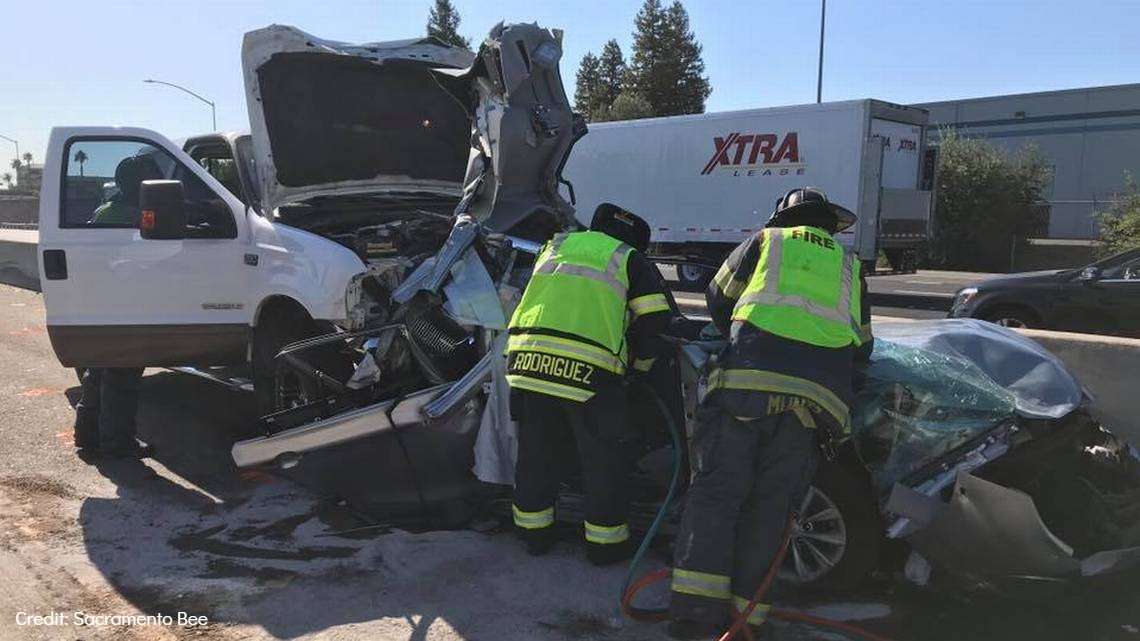Whiplash is a neck injury that is caused by a forceful, rapid back and forth movement of the neck. The term comes from the similar motion to cracking a whip.
Whiplash involves the vertebrae, nerves, ligaments, muscles, or a combination of these structures in the neck. This type of medical condition can occur after a car accident or other forceful event. Injured persons may feel dull or acute pain with inflammation, limited mobility, headaches, and muscle tenderness. If you think you’ve experienced whiplash, it is always best to seek immediate medical care
What causes whiplash?
The most common cause of whiplash is a car accident. The high impact of a vehicle collision will typically cause the neck to whip forward unnaturally and cause an intense strain and flexion of the neck.
Car crashes are not the only place that whiplash can occur. Sports injuries, slip and fall accidents, and physical abuse all are things that can cause whiplash if the extension of the neck is severe enough.
The rapid back and forth movement can injure bones in the spine, disks between the bones, ligaments, muscles, nerves and other tissues of the neck.
Whiplash car crash injuries usually result from:
• Being rear-ended in a car accident
• Being stopped at an intersection or otherwise stopped
• Hit by multiple vehicles from different directions
What are the symptoms of whiplash?
Signs and symptoms of whiplash can immediately after a car crash or may take several days to appear. Common symptoms include:
• Stiff neck
• Worsening of neck pain as neck moves
• Loss of range of motion in neck
• Headaches, especially originating in base of skull
• Tenderness or pain in shoulder, upper back, and arms
• Tingling or numbness in arms
• Fatigue
• Dizziness
• Muscle spasms
How is whiplash diagnosed?
Whiplash is considered a soft-tissue injury. Not every test that a doctor performs will bring back a positive result for whiplash due to small structures that tests aren’t able to pick up. Some tests aren’t able to capture symptoms of inflammation. There are also times when test results come back normal, but people report pain.
You may see a doctor after a car crash who uses these tests:
Physical Exam. In this, the doctor will check posture, range of motion, and muscle tension around your neck. If there are any abnormalities, further tests may be done.
Cervical spine MRI. An MRI is a medical test that uses advanced technology to look inside the human body. The cervical spine is the top part of the neck that connects to the skull. This type of MRI takes pictures of soft tissue and discs within the neck that may be damaged.
CT scan. A CT scan is essentially an advanced version of the x-ray. This type of scan may be ordered to look at bone structures more closely or if there is potentially another internal injury.
Bone scan. A bone scan is used to identify tiny fractures that weren’t picked up by an MRI or CT scan.
What is the whiplash grading system?
There are different grades of whiplash. The Quebec Task Force classifies persons with whiplash in the following way:
Grade 0: No complaints about neck or physical signs.
Grade I: Neck pain, stiffness, and tenderness only. Grade I doesn’t have physical signs.
Grade II: Neck pain, stiffness, and tenderness AND musculoskeletal signs. Musculoskeletal signs include decreased range of motion and local tenderness.
Grade III: Neck, pain, stiffness, and tenderness AND neurological signs. Neurological signs include decreased range of motion and local tenderness.
Grade IV: Neck pain AND a fracture or dislocation.
How long does it take for whiplash to go away?
Getting medical treatment will help whiplash to eventually resolve, however, it is possible to feel the effects for up to a year. Some of the things that effect how quickly you heal are:
• The severity of the car accident
• The severity of the pain immediately after the crash
• If pain was accompanied by memory loss or other neurological symptoms
• Shooting pain or nerve damage
How is whiplash treated?
Doctors treat whiplash by:
• Prescribing anti-inflammatories
• Pain medications
• Referring to physical/occupational therapy or a chiropractor
• Referring to specialists for surgery or neck/spine care
Can a car accident attorney help me if I have whiplash?
Insurance companies have many tricks (here, here, and here) that they use to make you think you may not need a car accident lawyer or to hurt your claim. They will also prey on people’s aversion to wanting to pursue injury claims because of the stigma of filing a lawsuit. But if you’ve been injured by someone else’s negligence, why should you shoulder the burden of pain and suffering, medical bills, and lost time from work? Isn’t that what insurance was created for? Yes!
If you were recently in an auto collision or some other forceful event where you may have experienced neck trauma, please seek immediate medical attention. Sometimes injuries won’t show themselves for weeks. Your health is absolutely the number one priority. But if the insurance company doesn’t see that you’ve been treating any possible injuries, they will deny your claim or drastically reduce it. This gap in time not only hurts your claims, but makes it difficult to find a personal injury attorney willing to take your case.
There is no cost to you in calling us and discussing your case. We offer free and friendly advice and give an honest opinion of your claim. You can reach us at (916) 619-5452 or through our form on our website.






